Introduction: Embracing Sustainability in Apulia, Italy’s Rustic Paradise
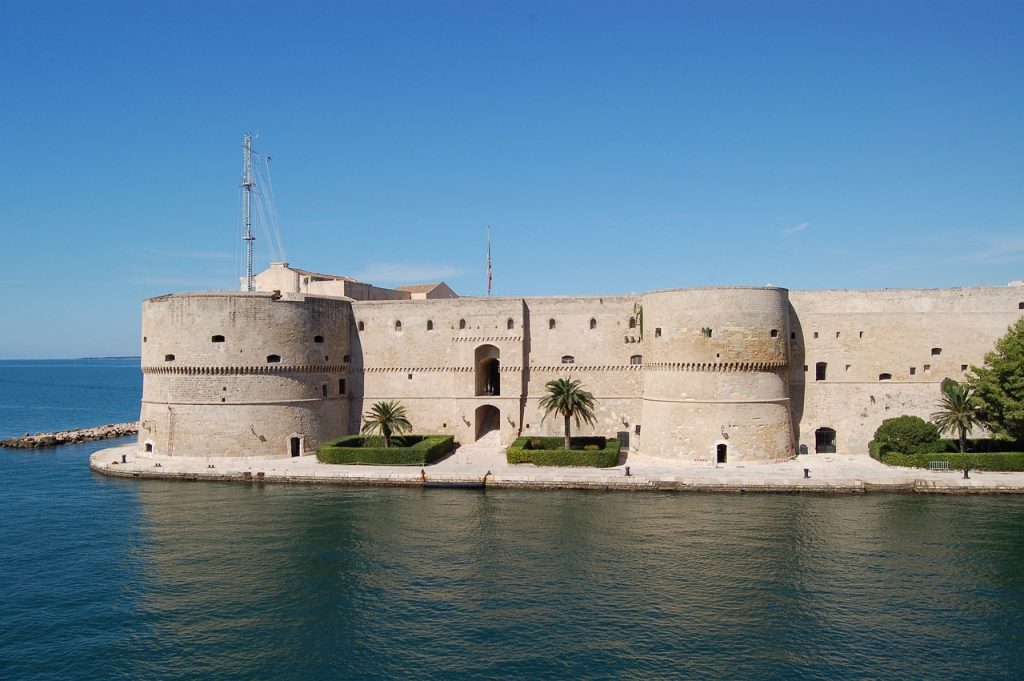
Apulia (Puglia in Italian), located in the sun-drenched heel of Italy’s boot, is a region of stunning diversity, offering everything from rugged coastlines and whitewashed towns to ancient olive groves and UNESCO World Heritage Sites. Known for its authentic charm, Apulia is also gaining recognition as a sustainable travel destination, with initiatives focused on preserving its natural beauty and promoting eco-friendly tourism.
In recent years, Apulia has taken strides to develop responsible tourism practices that respect the environment and local communities. From eco-friendly accommodations to organic cuisine and sustainable agriculture, Apulia offers a wealth of opportunities for visitors to experience Italy in an environmentally conscious way. This blog post will explore how you can enjoy Apulia’s incredible landscapes and cultural heritage while minimizing your ecological footprint. Whether you’re exploring its beautiful coastline, tasting its organic wines, or hiking through its national parks, Apulia is a region where sustainability and tourism coexist in harmony.
Why Apulia is an Ideal Destination for Sustainable Tourism
Apulia is not only a top destination for sun-seekers and history buffs, but it’s also becoming a leader in sustainable tourism. With its combination of unspoiled landscapes, rich biodiversity, and a strong emphasis on traditional, organic agriculture, the region is perfect for travelers seeking an eco-friendly adventure.
1. Preserving Natural Landscapes and Biodiversity
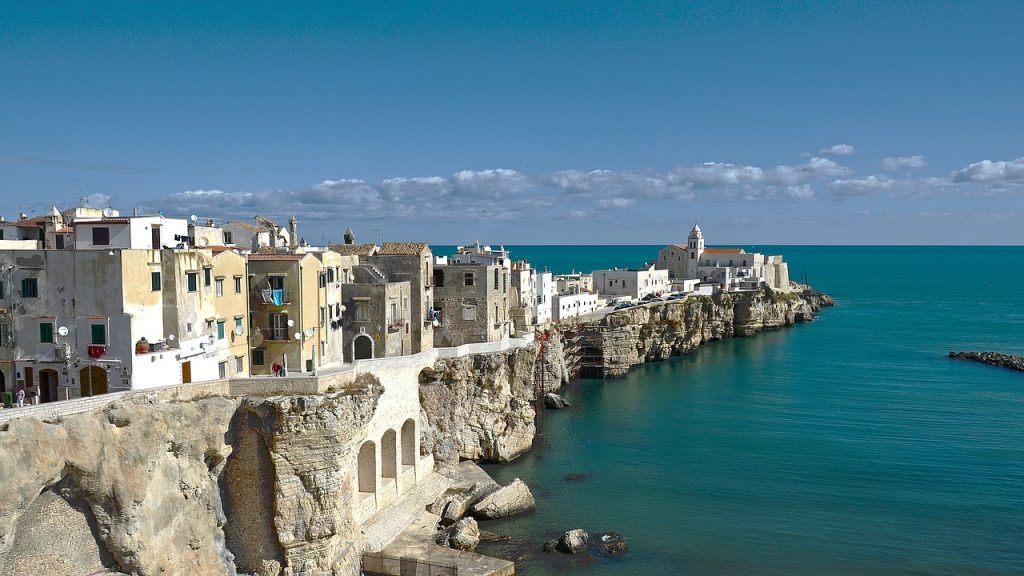
Apulia is home to some of Italy’s most beautiful natural landscapes, including national parks, marine reserves, and rural countryside. From the dramatic cliffs of the Gargano Peninsula to the tranquil beaches of the Salento and the rolling hills of the Valle d’Itria, Apulia’s diverse environments are worth preserving.
The region boasts several protected areas, including Gargano National Park and Torre Guaceto Nature Reserve, which are vital for preserving local ecosystems and protecting endangered species. Sustainable tourism helps ensure that these areas remain pristine, offering opportunities for low-impact activities like hiking, birdwatching, and responsible wildlife tours.
2. Supporting Local Communities and Traditions
Apulia’s economy has long been centered around agriculture, with the region producing much of Italy’s olive oil, wine, and wheat. Traditional farming practices have been passed down through generations, and many farms still use sustainable, organic methods. By supporting local agriturismi (farm stays) and purchasing products directly from farmers, tourists can contribute to the preservation of these age-old traditions.
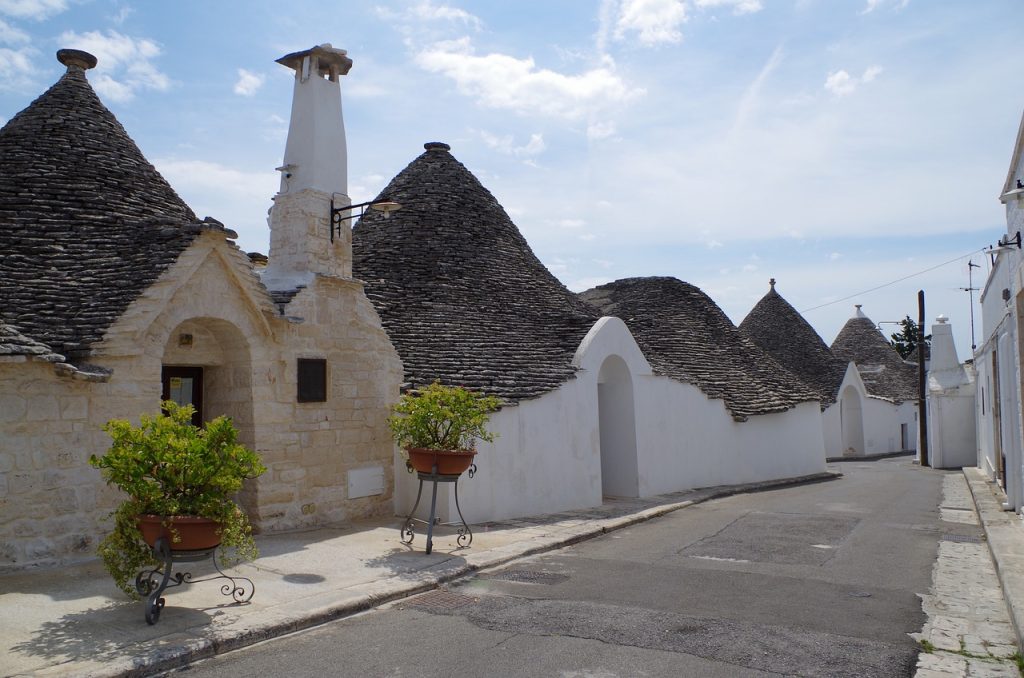
Additionally, Apulia’s historic towns and villages, such as Alberobello with its iconic trulli houses, and Lecce, known as the “Florence of the South,” offer visitors a chance to immerse themselves in local culture. Sustainable tourism ensures that the economic benefits of tourism are shared with these local communities, helping them thrive while maintaining their cultural heritage.
3. Combating Over-Tourism
While Apulia has avoided the overwhelming crowds seen in other parts of Italy, the region is experiencing an increase in visitors, particularly during the summer months. By promoting sustainable tourism practices, such as encouraging travel during the shoulder seasons and focusing on lesser-known areas, Apulia can manage tourism growth without damaging its fragile environments and local communities.
Government and Community Initiatives: Apulia’s regional government has implemented a number of initiatives to promote sustainable tourism, such as the development of eco-friendly infrastructure, the protection of natural areas, and support for organic agriculture. By traveling responsibly in Apulia, visitors can contribute to the success of these efforts.
Sustainable Travel Tips for Visiting Apulia
Visiting Apulia sustainably is not only about making conscious travel decisions, but also about embracing a slower, more immersive travel experience. By following these tips, you can enjoy an eco-friendly trip while supporting local communities and protecting the region’s natural beauty.
1. Opt for Eco-Friendly Transportation
- Public Transport and Electric Vehicles: Apulia is connected by an efficient network of trains and buses, which makes it easy to travel between major cities and towns while reducing your carbon footprint. For those who prefer more flexibility, some car rental companies offer electric and hybrid vehicles, which allow you to explore the region with minimal environmental impact.
- Cycling and Walking: One of the best ways to discover Apulia’s charming countryside and coastline is by bike or on foot. Several cycling routes, such as the Ciclovia dell’Acquedotto Pugliese, take you through scenic rural landscapes, while walking tours of historic towns allow you to appreciate their architecture and history in a low-impact way.
2. Stay in Sustainable Accommodations
- Eco-Friendly Hotels and B&Bs: Look for accommodations that have been certified by sustainability programs like Green Key or EcoWorldHotel. These lodgings often use renewable energy, promote water conservation, and follow eco-friendly practices such as waste reduction and local sourcing of food and materials.
- Agriturismi: For an authentic experience, consider staying at an agriturismo—family-owned farms that offer lodging, meals, and sometimes activities like cooking classes and wine tastings. Many of these farms practice organic farming and follow sustainable practices that respect the land and local traditions.
3. Minimize Your Waste
- Say No to Single-Use Plastics: Carry a reusable water bottle, as many towns in Apulia have public fountains with fresh, drinkable water. Avoid single-use plastics by bringing your own reusable bags, utensils, and containers.
- Responsible Souvenir Shopping: Support local artisans by purchasing handmade products, such as ceramics from Grottaglie, linens, or olive wood crafts. These souvenirs not only have a lower environmental impact but also support the region’s traditional crafts and economy.
4. Respect Nature and Culture
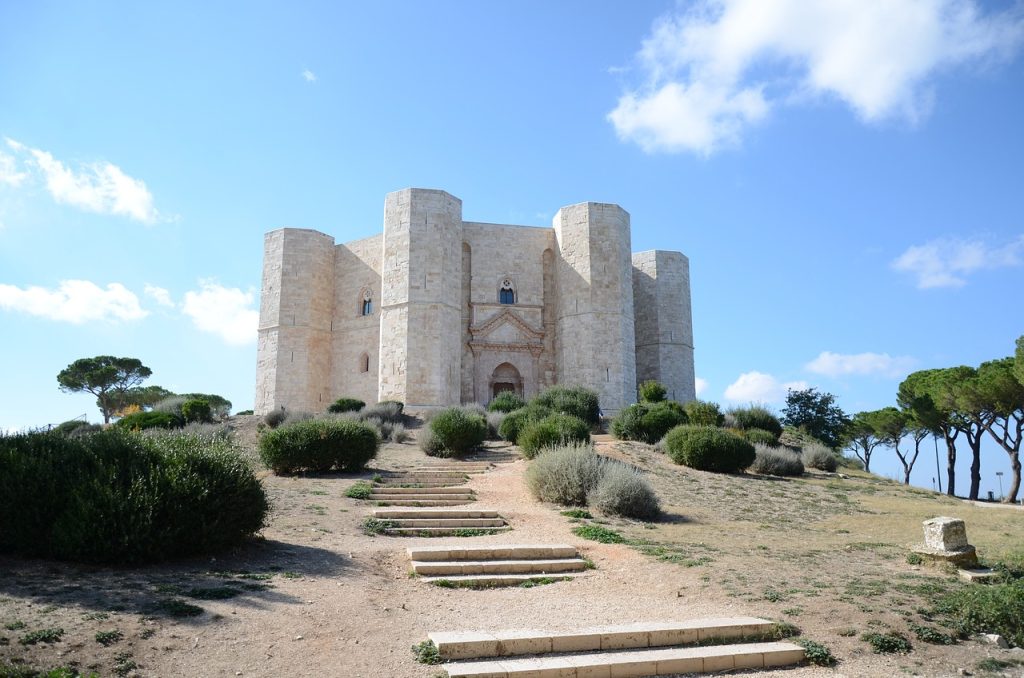
When exploring Apulia’s natural parks, beaches, and historic sites, be mindful of your impact. Stick to marked trails, avoid disturbing wildlife, and respect the cultural traditions of the places you visit. Following the “Leave No Trace” principles ensures that you protect the environment and cultural heritage of Apulia for future generations.
Exploring Sustainable Destinations in Apulia
Apulia offers a range of sustainable destinations where eco-conscious travelers can experience the region’s natural beauty, culture, and history in a responsible way. Whether you’re hiking through national parks or visiting ancient towns, here are some of the must-visit eco-friendly spots in Apulia.
1. Gargano National Park
Located in the northern part of Apulia, the Gargano Peninsula is often called the “spur” of Italy’s boot. It’s home to the Gargano National Park, a vast protected area that includes forests, coastal cliffs, and limestone mountains.
- Sustainable Activities: The park offers numerous eco-friendly activities, such as hiking through the ancient Foresta Umbra, which is one of the oldest forests in Italy and a UNESCO World Heritage Site. You can also explore the stunning coastline by boat or kayak, taking in the towering sea cliffs and hidden coves of the Tremiti Islands, a marine reserve known for its crystal-clear waters.
- Eco-Friendly Accommodations: Stay in one of the park’s eco-lodges or agriturismi, where you can enjoy organic meals made from locally sourced ingredients and participate in activities that support sustainable tourism.
2. Valle d’Itria
The Valle d’Itria, located in the heart of Apulia, is famous for its rolling hills, olive groves, and trulli houses—traditional stone huts with conical roofs that dot the landscape.
- Sustainable Activities: Explore the region’s picturesque countryside by cycling or walking along its network of trails, which pass through vineyards, olive groves, and charming villages like Alberobello and Locorotondo. Many local farms offer tours and tastings where you can sample organic wines, olive oils, and other locally produced goods.
- Eco-Friendly Accommodations: Stay in one of the region’s many eco-friendly trulli or masserie (farmhouses), which have been restored using sustainable materials and traditional building techniques.
3. Salento Peninsula
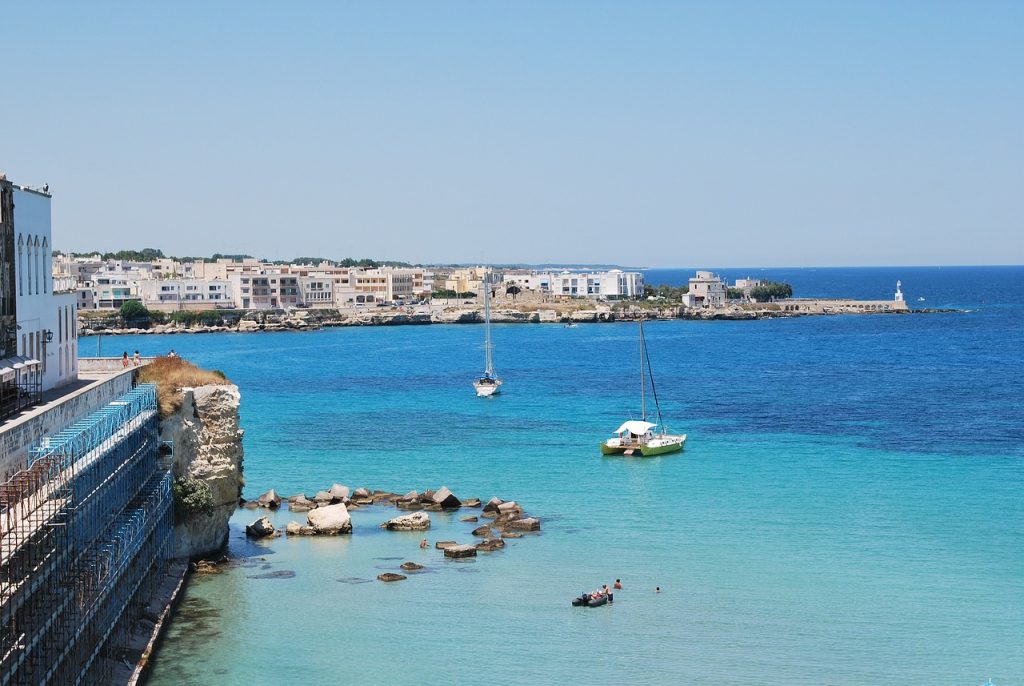
The Salento Peninsula, located at the southern tip of Apulia, is known for its beautiful beaches, historic towns, and vibrant local culture. It’s also a great destination for sustainable tourism.
- Sustainable Activities: Visit the Torre Guaceto Nature Reserve, a coastal protected area that’s home to diverse wildlife, including sea turtles, migratory birds, and rare plant species. You can explore the reserve on foot or by bike, or take part in a snorkeling tour to discover its underwater ecosystems.
- Cultural Experiences: The towns of Lecce and Otranto offer a chance to explore Apulia’s rich history and culture while supporting local businesses. Attend a sagra (food festival) or a pizzica dance event to experience the region’s traditional music and cuisine.
4. Torre Guaceto Nature Reserve
One of Apulia’s premier sustainable tourism destinations, Torre Guaceto Nature Reserve is a marine and coastal protected area located near Brindisi.
- Sustainable Activities: The reserve offers a range of eco-friendly activities, such as guided hiking tours, wildlife observation, and snorkeling. Visitors can explore the coastal dunes, wetlands, and underwater seagrass meadows, learning about the area’s unique ecosystems and the efforts to protect endangered species like the loggerhead sea turtle.
- Supporting Local Conservation: Torre Guaceto is managed by a local conservation organization that promotes sustainable tourism and environmental education. Visitors can support these efforts by participating in conservation activities, such as beach clean-ups or volunteering with turtle rescue programs.
Sustainable Apulian Cuisine: A Celebration of Organic and Local Flavors
Apulian cuisine is deeply rooted in the region’s agricultural traditions, with a focus on fresh, seasonal ingredients and simple, flavorful dishes. The region’s commitment to sustainability is reflected in its organic farming practices and its emphasis on locally sourced products.
1. Organic Agriculture in Apulia
Apulia is known as the “breadbasket of Italy,” producing a significant portion of the country’s wheat, olive oil, and wine. Many farms in the region follow organic farming practices, avoiding synthetic pesticides and fertilizers in favor of traditional methods that respect the land and biodiversity.
- Olive Oil and Wine Production: Apulia is Italy’s largest producer of olive oil, much of which is produced organically. Visitors can tour organic olive groves and wineries to learn about sustainable cultivation methods and sample some of the region’s best products, including Primitivo and Negroamaro wines.
- Traditional Crops: In addition to olive oil and wine, Apulia is known for its durum wheat, which is used to make traditional pastas like orecchiette, as well as its vegetables, almonds, and figs. Many farms in Apulia are committed to preserving local crop varieties and practicing sustainable agriculture.
2. Farm-to-Table Dining
One of the best ways to experience Apulian cuisine is through farm-to-table dining, where restaurants and agriturismi source their ingredients from local farms and producers.
- Must-Try Dishes: Enjoy classic Apulian dishes like orecchiette con le cime di rapa (pasta with turnip greens), focaccia barese (a type of bread topped with tomatoes and olives), and burrata (a fresh cheese made from mozzarella and cream). These dishes are often made using organic, locally grown ingredients, reflecting the region’s culinary traditions.
- Sustainable Seafood: Apulia’s long coastline means that seafood plays an important role in its cuisine. Sustainable fishing practices are crucial for maintaining healthy fish populations and protecting marine ecosystems. Look for restaurants that source their seafood responsibly and offer dishes made with local catches, such as polpo alla pignata (octopus stew) or frutti di mare (seafood pasta).
3. Wine and Olive Oil Experiences
Many organic farms and wineries in Apulia offer tours and tastings, giving visitors the chance to learn about sustainable agriculture and enjoy the region’s finest products.
- Visiting Wineries: Apulia is home to several organic wineries that are committed to sustainable practices, such as Cantine Menhir and Tormaresca. These wineries focus on producing high-quality wines while preserving the natural environment and supporting local communities.
- Organic Olive Oil: Apulian olive oil is renowned for its quality and flavor, and many producers use organic methods to cultivate their olive trees. Visitors can tour organic olive oil mills, participate in tastings, and even join in the olive harvest during the fall season.
Supporting Local Communities Through Responsible Tourism
Sustainable tourism in Apulia goes beyond protecting the environment—it’s also about supporting the people who call this region home. By choosing to engage with local communities, travelers can help preserve Apulia’s cultural heritage and contribute to the region’s economic well-being.
1. Promoting Cultural Heritage
Apulia is rich in history and traditions, from its ancient Greek and Roman roots to its unique architecture and cuisine. By participating in local cultural activities, travelers can help keep these traditions alive.
- Local Festivals and Events: Many towns and villages in Apulia host annual festivals that celebrate traditional music, dance, and food. Events like the Festa di San Nicola in Bari or the Sagra della Frisella in Lecce provide an opportunity to experience Apulian culture and support local businesses.
- Traditional Crafts: Apulia is known for its traditional crafts, including ceramics, textiles, and olive wood carving. Visiting artisan workshops and purchasing handmade goods not only supports local artisans but also helps preserve these ancient crafts for future generations.
2. Supporting Sustainable Tourism Enterprises
Many tourism businesses in Apulia are committed to sustainability, reinvesting their profits in community projects and environmental conservation. By choosing to spend your money with these businesses, you can contribute to the long-term sustainability of the region.
- Agriturismi and Family-Owned Businesses: Staying at agriturismi or locally-owned guesthouses helps ensure that tourism revenue stays within the community. Many of these businesses also promote sustainable practices, such as using renewable energy, reducing waste, and supporting local farmers and artisans.
- Eco-Friendly Tour Operators: Choose tour operators that prioritize sustainability and work with local guides who have a deep understanding of the region’s natural and cultural heritage.
3. Volunteering and Giving Back
Consider volunteering with a local conservation or community project during your stay in Apulia. Many organizations work on initiatives ranging from habitat restoration to cultural preservation, and your contribution can make a meaningful impact.
- Environmental Volunteering: Join a beach clean-up or participate in a reforestation project to help protect Apulia’s natural environment. These activities not only benefit the local ecosystem but also provide a rewarding way to connect with the region’s landscapes.
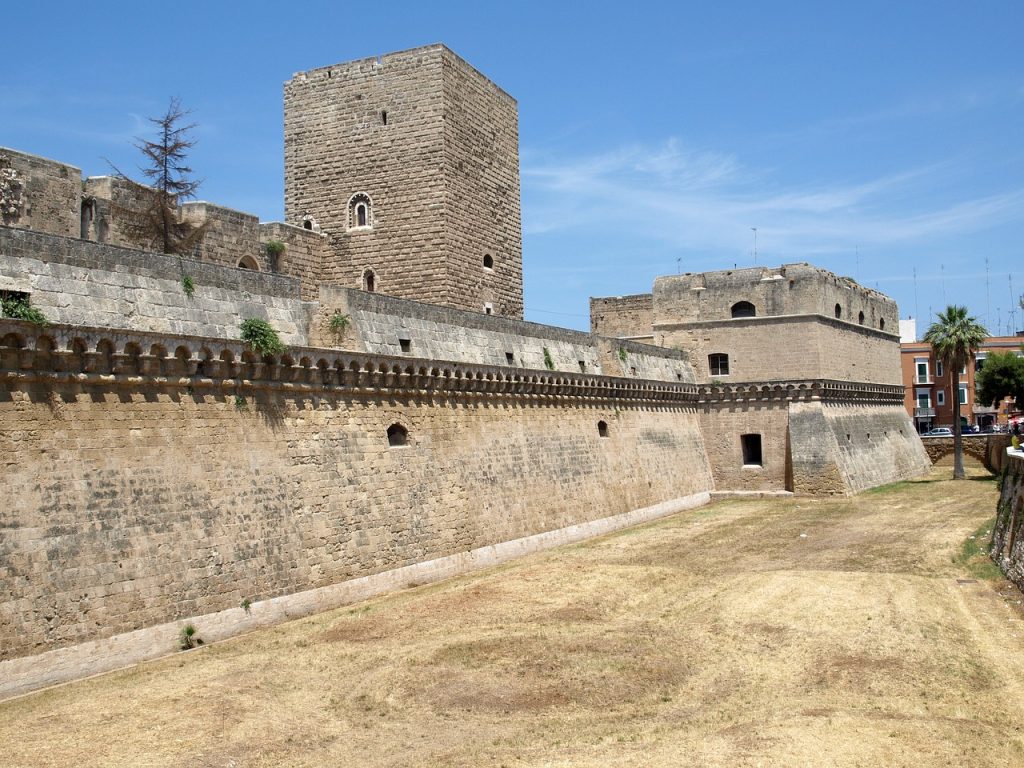
Conclusion: Sustainable Travel in Apulia – A Journey of Preservation and Discovery
Apulia offers travelers the chance to experience Italy in its most authentic and unspoiled form. From its rugged coastlines and ancient olive groves to its historic towns and villages, the region is a treasure trove of natural beauty and cultural heritage. By choosing sustainable travel practices, you can enjoy all that Apulia has to offer while ensuring that its landscapes and traditions are preserved for future generations.
Sustainable tourism in Apulia is about more than just minimizing environmental impact—it’s about engaging with local communities, supporting traditional crafts and agriculture, and immersing yourself in the rich history and culture of this unique region. Whether you’re staying at an eco-friendly agriturismo, tasting organic wines, or exploring one of the region’s national parks, your choices can make a positive difference.
As you plan your trip to Apulia, remember that responsible travel isn’t just a trend—it’s a way to ensure that the places we love to visit continue to thrive. By embracing sustainability in your travel plans, you’ll not only have an unforgettable experience but also contribute to the long-term preservation of Apulia’s incredible beauty and heritage.
